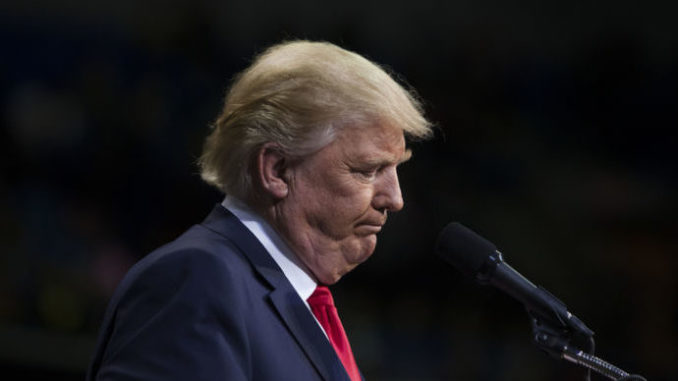
By David Brunnstrom and Arshad Mohammed
WASHINGTON (Reuters) – In three words of a tweet this week, U.S. President-elect Donald Trump vowed North Korea would never test an intercontinental ballistic missile.
“It won’t happen!” Trump wrote after North Korean leader Kim Jong Un said on Sunday his nuclear-capable country was close to testing an ICBM of a kind that could someday hit the United States.
Preventing such a test is far easier said than done, and Trump gave no indication of how he might roll back North Korea’s weapons programs after he takes office on Jan. 20, something successive U.S. administrations, both Democratic and Republican, have failed to do.
Former U.S. officials and other experts said the United States essentially had two options when it came to trying to curb North Korea’s fast-expanding nuclear and missile programs – negotiate or take military action.
Neither path offers certain success and the military option is fraught with huge dangers, especially for Japan and South Korea, U.S. allies in close proximity to North Korea.
The Republican president-elect complained in a separate tweet that China, North Korea’s neighbour and only ally, was not helping to contain Pyongyang – despite China’s support for successive rounds of U.N. sanctions against Pyongyang.
While many critics, including within President Barack Obama’s administration, agreed China could press North Korea harder, the State Department said it did not agree with Trump’s assessment that China was not helping.
Experts said Trump’s tough stance toward Beijing on issues from trade to Taiwan could prove counterproductive in securing greater Chinese cooperation.
James Acton, co-director of the Nuclear Policy Program at Washington’s Carnegie Endowment for International Peace think tank, said that with his North Korea tweet, Trump had drawn a red line he could later be judged by, like Obama’s 2012 warning to Syria over the use of chemical weapons.
“This was a foolhardy tweet for Trump to send given the enormous challenges of constraining North Korea’s nuclear and missile programs. I think this could be something that comes back to haunt him.”
THREE OPTIONS
U.S. officials, who did not want to be identified, said that if ordered, the U.S. military had three options to respond to a North Korean missile test – a pre-emptive strike before it is launched, intercepting the missile in flight, or allowing a launch to take place unhindered.
One official, who did not wish to be named, said there were risks with pre-emptive action, including the possibility of striking the wrong target – or North Korean retaliation against regional allies.
Arms control expert Jeffrey Lewis questioned whether U.S. missile defences could shoot down a test missile, absent a lucky shot, and said destroying North Korea’s nuclear and missile programs would be a huge and risky undertaking.
Lewis, at the Middlebury Institute of International Studies in Monterey, California, said it would require “a large military campaign … over a fairly substantial period of time.”
He noted that North Korea’s main nuclear and missile test sites were on different sides of the country and factories that supplied them were scattered over several provinces.
“There’s a warren of tunnels under the nuclear site. And an ICBM can be launched from anywhere in the country because it’s mobile. You might as well invade the country,” Lewis said.
Republican U.S. Senator Cory Gardner, writing on cnn.com, said he hoped Trump’s administration would impose “secondary sanctions” on firms and entities that help North Korea’s weapons programs, many of which were in China.
‘PERIOD OF SERIOUS SANCTIONS’
While Trump has not detailed his policy approach to North Korea, an adviser to his transition team told Reuters he believed “a period of serious sanctions” had “to be a major part of any discussion on the options available here.”
State Department spokesman John Kirby said on Tuesday the United States had not ruled out additional sanctions, but added: “Let’s not get ahead of where we are.”
Victor Cha, who was an aide to former Republican President George W. Bush, said he believed Trump was serious about not letting North Korea have nuclear-capable ICBMs that could threaten the U.S. mainland.
“How to stop this is of course difficult. It’s a combination of diplomacy (to get a freeze), sanctions (Chinese ones and Treasury), moving more military assets to the region for extended deterrence, strike options, and integrated missile defence. That’s what would be on my menu,” he said.
Frank Jannuzi, a former State Department official who heads the Mansfield Foundation Asia dialogue forum, said Trump’s vow could prove as hollow as Obama’s pledge not to tolerate North Korea’s nuclear and missile programs.
“I worry … that it only emboldens the North, because they see it for what it is: empty talk,” he said. “It lays down a red line. … We don’t seem prepared to back up.”
He said North Korea had long defied U.S. and U.N. sanctions to pursue its nuclear and missile programs, and added: “One hundred and forty characters from Donald Trump aren’t going to change that.”
(Additional reporting by Idrees Ali in Washington; Editing by Peter Cooney)

